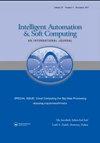用于测试集缩减的多目标自适应二进制算法
IF 2
4区 计算机科学
Q2 Computer Science
引用次数: 3
摘要
回归测试是软件维护阶段必不可少的质量测试技术。执行此命令是为了保证软件在修改后的有效性。随着软件的发展,测试套件扩展,并且可能变得太大,无法在有限的测试预算和/或时间内完全执行。因此,为了减少回归测试的成本,必须通过丢弃冗余的测试用例并选择最具代表性的测试用例来减少测试套件的大小,这些测试用例不会损害测试套件在某些预定义标准(例如其故障检测能力)方面的有效性。这个问题被称为测试套件缩减(TSR);它被称为不确定性多项式时间完全(NP-complete)问题。本文将TSR问题表述为一个多目标优化问题;并采用启发式二进制蝙蝠算法(BBA)进行求解。为了提高BBA算法在寻找pareto最优解时的勘探能力,对BBA算法进行了改进。采用8个不同大小的测试套件和12个基准函数,对所提出的多目标自适应二元蝙蝠算法(MO-ABBA)的有效性进行了评估。实验结果表明,在相同的故障发现率下,MO-ABBA算法比MO-BBA算法和MOBPSO算法更能减少测试套件的大小。此外,MO-ABBA比MO-BBA和MO-BPSO收敛到最佳解的速度更快。本文章由计算机程序翻译,如有差异,请以英文原文为准。
Multi-Objective Adapted Binary Bat for Test Suite Reduction
Regression testing is an essential quality test technique during the maintenance phase of the software. It is executed to ensure the validity of the software after any modification. As software evolves, the test suite expands and may become too large to be executed entirely within a limited testing budget and/or time. So, to reduce the cost of regression testing, it is mandatory to reduce the size of the test suite by discarding the redundant test cases and selecting the most representative ones that do not compromise the effectiveness of the test suite in terms of some predefined criteria such as its fault-detection capability. This problem is known as test suite reduction (TSR); and it is known to be as nondeterministic polynomial-time complete (NP-complete) problem. This paper formulated the TSR problem as a multi-objective optimization problem; and adapted the heuristic binary bat algorithm (BBA) to resolve it. The BBA algorithm was adapted in order to enhance its exploration capabilities during the search for Pareto-optimal solutions. The effectiveness of the proposed multiobjective adapted binary bat algorithm (MO-ABBA) was evaluated using 8 test suites of different sizes, in addition to twelve benchmark functions. Experimental results showed that, for the same fault discovery rate, the MO-ABBA is capable of reducing the test suite size more than each of the multi-objective original binary bat (MO-BBA) and the multi-objective binary particle swarm optimization (MOBPSO) algorithms. Moreover, MO-ABBA converges to the best solutions faster than each of the MO-BBA and the MO-BPSO.
求助全文
通过发布文献求助,成功后即可免费获取论文全文。
去求助
来源期刊

Intelligent Automation and Soft Computing
工程技术-计算机:人工智能
CiteScore
3.50
自引率
10.00%
发文量
429
审稿时长
10.8 months
期刊介绍:
An International Journal seeks to provide a common forum for the dissemination of accurate results about the world of intelligent automation, artificial intelligence, computer science, control, intelligent data science, modeling and systems engineering. It is intended that the articles published in the journal will encompass both the short and the long term effects of soft computing and other related fields such as robotics, control, computer, vision, speech recognition, pattern recognition, data mining, big data, data analytics, machine intelligence, cyber security and deep learning. It further hopes it will address the existing and emerging relationships between automation, systems engineering, system of systems engineering and soft computing. The journal will publish original and survey papers on artificial intelligence, intelligent automation and computer engineering with an emphasis on current and potential applications of soft computing. It will have a broad interest in all engineering disciplines, computer science, and related technological fields such as medicine, biology operations research, technology management, agriculture and information technology.
 求助内容:
求助内容: 应助结果提醒方式:
应助结果提醒方式:


